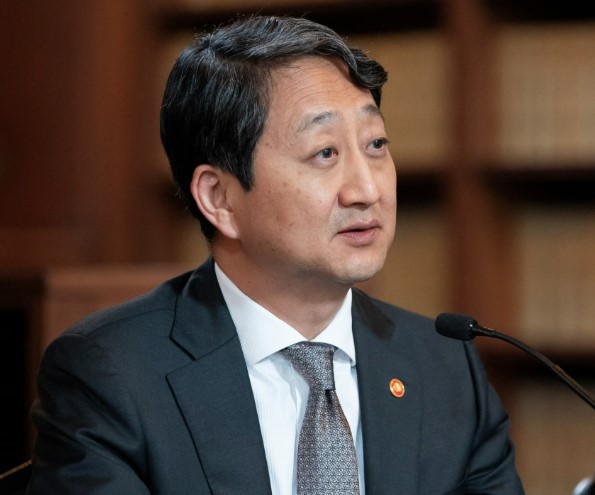South Korea and the United States have agreed to work together to quickly resolve concerns over South Korea’s unexpected addition to the US Department of Energy’s (DOE) “Sensitive and Other Designated Countries” list. This designation, which includes nations like China, Iran, Russia, and North Korea, raised concerns in South Korea, especially since it is a long-standing ally of the US.
Unexpected Inclusion in the Sensitive List
The DOE has not provided a clear explanation for why South Korea was placed on this watchlist. However, South Korean officials were criticized for not noticing the decision earlier, as it was made back in January. The news has led to increased scrutiny within the country, with officials now working to find a resolution as quickly as possible.
The South Korean government immediately took action upon learning about the situation. The country’s Industry Minister has already visited Washington, DC, twice in one month to hold discussions with US officials. The primary goal of these meetings has been to understand the reasons behind the decision and ensure that South Korea is removed from the list.
South Korea Blocks DeepSeek AI Over Security Concerns Amid Growing Global Scrutiny
Government Efforts to Address the Issue
During the latest visit to Washington, the South Korean Industry Minister met with the US Secretary of Energy to explain the country’s concerns regarding the designation. South Korea emphasized that its inclusion on the list could negatively impact economic cooperation and technological exchanges. The US, in response, agreed to cooperate under the necessary procedures to resolve the issue as soon as possible.
While the country’s status on the list has raised concerns, the US clarified that the designation does not impose direct restrictions on bilateral technological or energy cooperation. This reassurance has provided some relief, but officials remain determined to seek a formal resolution.
A US official provided an explanation, stating that South Korea was added to the list due to incidents involving visitors to US Department of Energy laboratories mishandling sensitive information. However, no further details were given about what type of information was mishandled or how serious the issue was. The official also noted that this designation would not impact broader diplomatic or economic relations between the two countries.
Suspended South Korean President Resists Arrest: A Nation in Political Crisis
In addition to addressing the sensitive country status, the two governments also discussed future cooperation in the energy sector. South Korea has been working to expand its presence in advanced energy technologies, and both nations continue to collaborate on various energy-related projects. Despite the current situation, the US assured that South Korea remains an important partner in this field.
Rising Concerns in South Korea
The unexpected addition of South Korea to the sensitive list has led to widespread discussions in the country. Many industries that rely on US partnerships, particularly in the fields of technology and energy, have expressed concern about potential long-term consequences. Although the US has stated that this designation will not impact ongoing cooperation, South Korean businesses and officials remain cautious.
There is also a growing debate about national security and nuclear policy. With North Korea continuing its efforts to develop more nuclear weapons, some voices have raised concerns about whether stronger defense capabilities are needed. The sudden inclusion on the US watchlist has further fueled these discussions.
The situation has also drawn criticism regarding how the government monitors changes in international policies. Some believe authorities should have identified the issue earlier and taken quicker action. The delay in responding to the designation has raised concerns about handling such critical matters in the future.
Russia’s War Games: Targeting Japan and South Korea
Despite these concerns, diplomatic efforts are in full swing to resolve the issue. As a key US ally in Asia, the country remains committed to working closely with Washington to address the problem. The resolution of this matter will be closely watched, as it could have implications for future diplomatic and trade relations.

